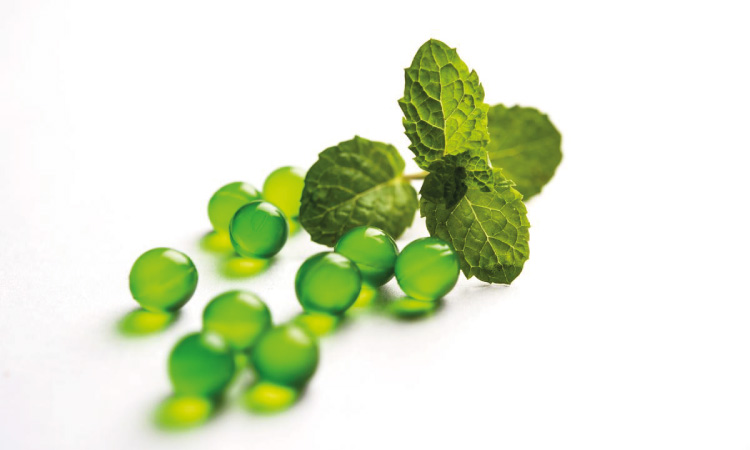Pregnancy may be a wonderful and joyful experience, but let’s be honest, it also has its share of difficulties. Digestive problems are a typical complaint among expecting moms. From annoying acid reflux to painful bloating, gastrointestinal issues may ruin an otherwise lovely day. But don’t worry, we’re here to talk about an age-old cure that might help relieve your stomach troubles: Pudin Hara. This age-old treatment is quite effective for treating digestive issues during pregnancy as well. But how safe is Pudin Hara during pregnancy? Could there be any negative effects? Let’s see what the facts are about it.
What is Pudin Hara?
In India, Pudin Hara is a well-known digestive medicine that can be purchased without a prescription and is used frequently. It is best known for relieving digestive issues like indigestion, gas, bloating, and stomach pain. Dabur, a well-known Indian consumer goods and healthcare company, manufactures Pudin Hara.
Peppermint oil and menthol are the two primary components that give Pudin Hara its stimulating effects. Peppermint oil, made from the leaves, contains compounds that may benefit digestion. And Menthol is what gives the medicine it’s cooling and soothing feeling, which is thought to help relieve digestive problems.
It is usually available in the form of liquid drops or capsules. It is often used to treat the following conditions:
- Gas and bloating: The menthol in Pudin Hara has been shown to relax intestinal muscles, which may help alleviate gas and bloating
- Indigestion: It is believed that Pudin Hara can help ease indigestion by relaxing the gastrointestinal tract’s muscles
- Nausea and throwing up: Peppermint oil has long been used to help with nausea and vomiting. A major ingredient in Pudin Hara is peppermint oil
- Stomach Ache: The cooling feeling that menthol gives can help calm a stomach ache and make you feel better
Related Reading: Hajmola During Pregnancy- Is It Safe?
Is It Safe To Use Pudin Hara While Pregnant?

There has been little research on the safety of Pudin Hara for pregnant women. Peppermint oil and menthol, the main constituents in Pudin Hara, have been shown to provide muscle-relaxing effects. While peppermint oil and menthol are routinely used as flavoring ingredients in food and are thought to be safe in moderate doses, their highly concentrated form in pharmaceutical formulations raises concerns, especially in the setting of pregnancy.
Because of the special physiological changes that occur during pregnancy, the muscle relaxant effects of Pudin Hara may have unintended consequences for uterine tone and the health of the developing baby. Given that there haven’t been any large-scale clinical studies about the safety of Pudin Hara during pregnancy, and given the possible risks of uterine relaxation and other factors related to pregnancy, pregnant women should be careful and talk to a qualified healthcare professional before using Pudin Hara or similar herbal remedies to relieve intestinal discomfort.
What Other Benefits Does Pudin Hara Have During Pregnancy Besides Digestion?
The primary component of Pudin Hara, which is known for its carminative effects, is mint oil, which is extracted from the mint plant. Because of these properties of its ingredients, pudding hara may help digestion and ease stomach pain. Pudin Hara’s primary ingredient, mint oil, has many other qualities and, as a result, may have additional effects during pregnancy.
Calculate Due Date With LMP
In addition to its ability to ease gastrointestinal discomfort, pudina hara may also be beneficial to pregnant women in the following ways:
1. Helps to relieve headaches
According to the findings of several studies, around 39 percent of pregnant women and newly delivered mothers will suffer from headaches1. The cooling and soothing properties of peppermint oil, one of Pudin Hara’s main ingredients, make it a natural headache and migraine remedy. The active ingredient in peppermint oil is menthol, which is considered a muscle relaxant and an aid in blood circulation. It is possible that these effects could help alleviate headaches, such as tension headaches.
When it comes to getting rid of a headache, these things will help more than just taking it in:
- The invigorating aroma of Pudin Hara can be inhaled by placing a few drops on a piece of tissue, cloth, or a cotton ball and holding it to one’s nose
- Steam inhalation with Pudin Hara can be done by adding a few drops of the oil to a bowl of hot water
- Put Pudin Hara or peppermint oil on their temples, forehead, or back of the neck after diluting it with coconut or jojoba oil
2. Boost your mood
Changes in hormone levels during pregnancy can affect a woman’s emotional state. The aroma of peppermint oil, which is one of the primary components of Pudin Hara, is famous for being energizing and revitalizing, and research suggests that this quality may have a beneficial effect on the state of mind of some people.
Peppermint has a stimulating effect on the senses and has been linked to increased alertness, energy, and focus2. So, products like Pudin Hara, which contain peppermint oil, may help improve one’s mood and overall health just by inhaling their scent.
3. Aids in the reduction of nasal congestion
Inhaling mint oil has been shown to help open airways and make breathing easier (source). Hormonal shifts during pregnancy can cause nasal congestion, which may be alleviated by using mint oils. Inhaling steam that has been infused with Pudina Hara can help alleviate nasal congestion and help you breathe more easily.
Related Reading: Eating Street Food During Pregnancy – 6 Potential Risks And 5 Tips To Enjoy It Guilt-Free
Pregnancy and Pudin Hara: Possible Dangers

There is not a significant amount of information available on the particular risks associated with taking pudin hara while pregnant, and there have been no studies on whether or not pudin hara is safe to use while pregnant. However, extreme caution is required before attempting to treat your condition with any herbal remedies at this delicate time.
Here are six possible risks to be aware of based on the ingredients frequently found in Pudin Hara and their potential effects:
1. May trigger uterine contraction
One of the primary ingredients in Pudin Hara is menthol. Menthol has muscle-relaxing properties3. It is possible that this could have an effect on the smooth muscles of the uterus. This, in turn, could result in uterine contractions and an increased risk of miscarriage or preterm labor.
2. It could mess up the hormone balance
In spite of the lack of conclusive proof, it is possible that Pudin Hara, like other menthol-containing herbal treatments, may interact with hormones owing to their physiological effects. Disruptions to the body’s natural hormonal cycles may have undesirable effects on pregnancy.
Related Reading: 10 Teas That Are Best Avoided During Pregnancy
3. May alter blood flow
Menthol might have an impact on both blood pressure and blood flow. Because of the menthol content of Pudin Hara, it may have a vasodilatory effect on the circulatory system4. Blood flow changes during pregnancy may have unintended consequences, including reduced oxygen and nutrient delivery to the fetus. More study and thought are needed to fully understand the scope and implications of this effect, especially in the context of pregnancy.
4. Risk for allergic reactions
Because Pudin Hara contains menthol and peppermint oil, it is possible that some people will have an allergic reaction to it. Allergic reactions can cause skin rashes, itching, redness, swelling, and other serious symptoms. It is strongly recommended that you abstain from using products of this kind if you are aware that you are allergic to any of the components of Pudin Hara or if you have a history of experiencing allergic reactions to similar products.
5. Insufficient regulatory monitoring
The absence of regulatory oversight regarding Pudin Hara and similar herbal remedies during pregnancy raises concerns regarding the product’s quality, safety, and standardized testing. Herbal remedies are not regulated as closely as pharmaceutical drugs, so their ingredients, purity, and effectiveness may not always be the same.
This lack of oversight means that the safety and effectiveness of Pudin Hara during pregnancy might not be thoroughly tested or proven through rigorous scientific research. This increases the risk of potential adverse effects.
Related Reading: Triphala During Pregnancy – Potential Risks And Benefits
How Much Pudina Hara Should You Take While Pregnant?
Several pregnant women who used Pudin Hara claimed relief from their symptoms, including morning sickness, heartburn, and indigestion. One pudin hara pill after a meal and up to three pudin hara pills per day are considered safe doses. Lukewarm water is recommended for consumption. However. expert advice should always be sought when determining an appropriate drug dose during pregnancy.
In Conclusion

Even though Pudin Hara is a well-known and reputable cure in India, responses to any drug may differ from person to person. Some individuals may potentially find relief from their digestive symptoms by considering the use of Pudin Hara, although it’s worth noting that others may not necessarily experience substantial benefits. It is recommended to consult a healthcare professional before initiating any new regimen, including pudin hara during pregnancy. Additionally, please don’t hesitate to reach out if you have any concerns or experience unexpected discomfort. There is always another solution that can be found to alleviate the discomforts of pregnancy.
We hope you enjoy your pregnancy and find it to be as comfortable as possible.

